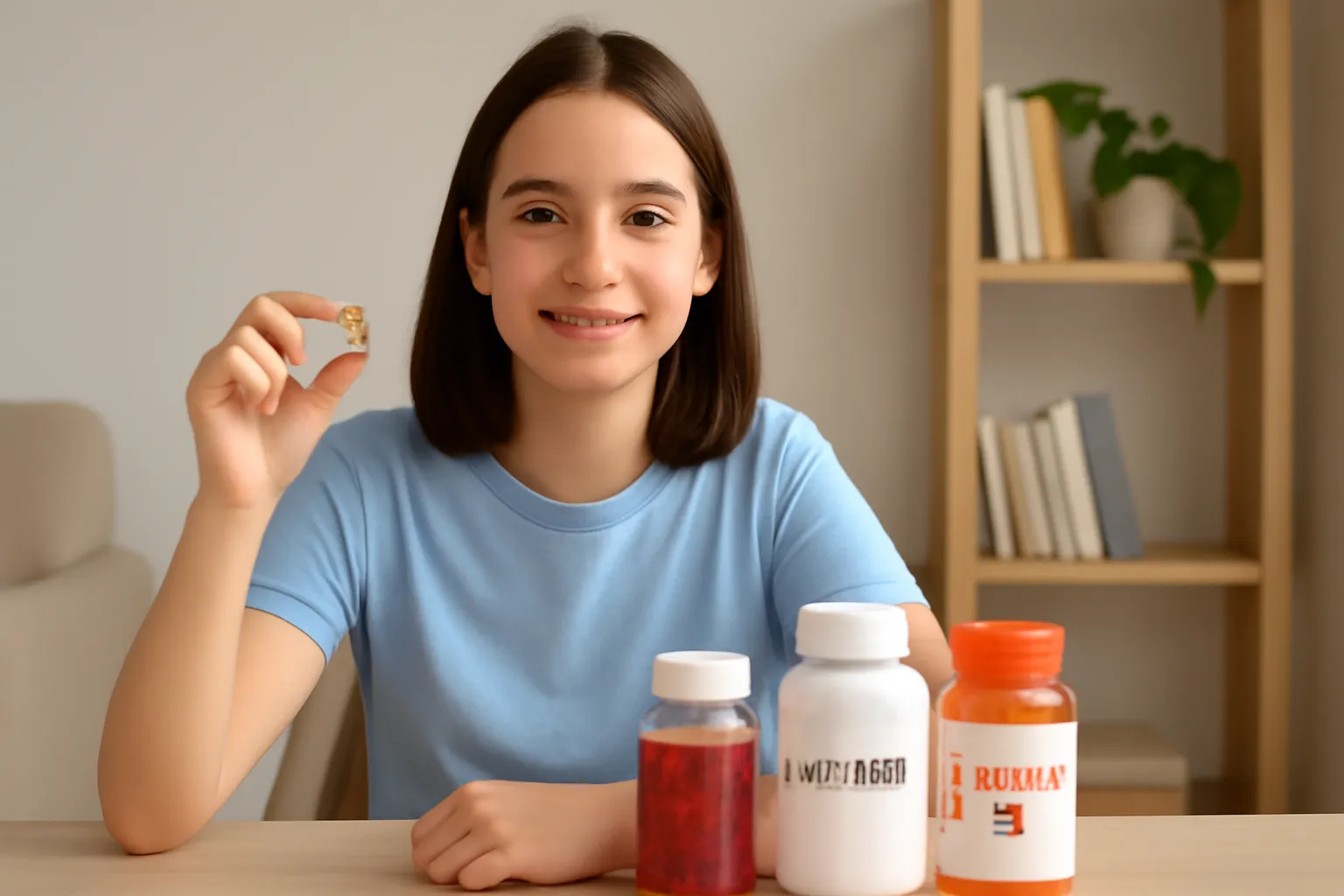Are you looking for the best vitamins for middle school students? From vitamin D to multivitamins, discover the essential nutrients for growth and development in adolescents. How can vitamins impact your child’s daily energy and wellness?
As middle school students continue to grow and develop, it’s essential that they receive the right amount of nutrients to support their active lives. Vitamins play a crucial role in ensuring their overall health, energy levels, and academic performance. However, with so many different vitamin supplements available, it can be challenging to choose the best options. This guide explores the top vitamins recommended for middle school students, the essential nutrients they need, and how to make the best choices for your child’s well-being.
Recommended Vitamins for Middle School Students
When it comes to middle school students, their bodies are in a state of rapid growth, making proper nutrition critical. A balanced diet filled with fruits, vegetables, and whole foods is ideal, but sometimes supplements are necessary to ensure they get the right amount of vitamins. Here’s a breakdown of the vitamins most beneficial to their health:
1. Vitamin D
One of the most important nutrients for middle school students is Vitamin D. It plays a vital role in bone health, immune function, and mood regulation. A lack of Vitamin D can lead to weaker bones, and studies suggest it may even affect students’ mental clarity and focus. The recommended amount for middle schoolers (ages 9 to 18) is around 600 IU per day. However, this can vary depending on where they live (more sunlight exposure increases natural Vitamin D production).
-
Natural Sources Sunlight, fortified milk, fatty fish like salmon, and egg yolks.
-
Supplements Vitamin D supplements are available in various forms, from drops to chewables, depending on your child’s preferences.
2. Vitamin B Complex
The B vitamins are essential for energy production, brain function, and the proper formation of red blood cells. Middle school students, especially those balancing schoolwork and extracurricular activities, need adequate amounts of B vitamins to keep their energy levels up. There are eight different B vitamins, but for young teens, B12 and folate (B9) are especially important.
-
Vitamin B12 Helps with brain function and energy production. This is critical for students involved in physical activities and learning.
-
Folate Important for cellular growth and development. It can support cognitive function, which is essential for academic success.
-
Natural Sources Whole grains, meat, eggs, leafy greens, and legumes.
-
Supplements B-complex vitamin pills or chewables often contain the full spectrum of B vitamins and are easy to find in health food stores.
3. Vitamin C
Vitamin C is famous for its role in boosting the immune system, but it also helps with the repair and growth of tissues in the body. Middle school students often face physical stress from sports and social activities, which makes immune support crucial. Vitamin C also aids in the absorption of iron from plant-based foods, which is important for growing students.
-
Recommended Amount Middle school students should aim for 45-75 mg of Vitamin C per day, depending on their age and gender.
-
Natural Sources Citrus fruits (oranges, lemons), strawberries, bell peppers, and broccoli.
-
Supplements Chewable Vitamin C tablets or gummies can be an enjoyable way for students to get their daily dose.
The Importance of Multivitamins for Middle School Students
While specific vitamins like Vitamin D and C are important, multivitamins can provide an all-encompassing solution for those who struggle to get all their nutrients from food alone. Multivitamins are designed to fill in any nutritional gaps and ensure that your child is getting all the essential nutrients needed for healthy growth and development.
Why Choose a Multivitamin?
-
Comprehensive Nutrient Coverage Multivitamins provide a blend of key vitamins and minerals such as Vitamin A, C, D, E, K, B-vitamins, calcium, and magnesium, all in one convenient pill.
-
Support for Bone Health Many middle school students still have developing bones, so calcium and Vitamin D are particularly important for bone density and health.
-
Boosted Immunity Vitamins like Vitamin C and zinc help strengthen the immune system, making it easier for students to avoid common illnesses.
-
Improved Mental Clarity Nutrients such as Vitamin B12, omega-3 fatty acids, and magnesium can boost focus and cognitive function, which is vital for academic success.
-
Natural Sources If you prefer to rely on food, try including more fortified cereals, dairy products, and leafy greens in their diet.
-
Supplements Many reputable brands offer multivitamins specially formulated for the needs of teenagers.
Common Ingredients to Look For in Multivitamins
-
Zinc Supports immune function.
-
Calcium Essential for bone health.
-
Vitamin A Supports eye health.
-
Iodine Important for metabolism and hormone production.
How Much Vitamin D is Recommended for Middle School Students?
As mentioned earlier, Vitamin D is crucial for growth, bone health, and overall wellness. But how much Vitamin D should middle school students be getting? According to the Institute of Medicine, the daily recommended amount of Vitamin D for children ages 9 to 18 is 600 IU (International Units). However, many children may not get enough Vitamin D from food alone, especially if they are not regularly exposed to sunlight.
How to Ensure Adequate Vitamin D Intake
-
Sun Exposure Encourage your child to spend time outside daily, especially during midday when sunlight is most intense. About 15 minutes of sunlight on the face, arms, and hands is sufficient for most children to produce enough Vitamin D.
-
Fortified Foods Include foods like fortified milk, cereals, and orange juice in their diet. Fatty fish such as salmon or tuna also contain high levels of Vitamin D.
-
Supplements If your child struggles to get enough Vitamin D from food or sunlight, consider a Vitamin D supplement. Liquid drops or chewable tablets are easy to take and can be found in most health stores.
Conclusion
Proper nutrition is essential during the middle school years when the body is rapidly growing and developing. By ensuring that your child is receiving the right balance of vitamins—such as Vitamin D, Vitamin B, and Vitamin C—you can help support their immune system, bone health, energy levels, and overall well-being. Consider including a multivitamin as a convenient way to provide comprehensive nutritional support. If you’re ever unsure about which supplements are right for your child, consult with a pediatrician to find the best options tailored to their specific needs.






